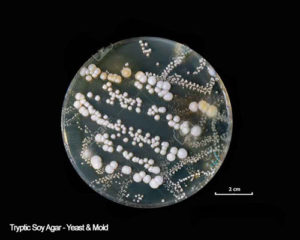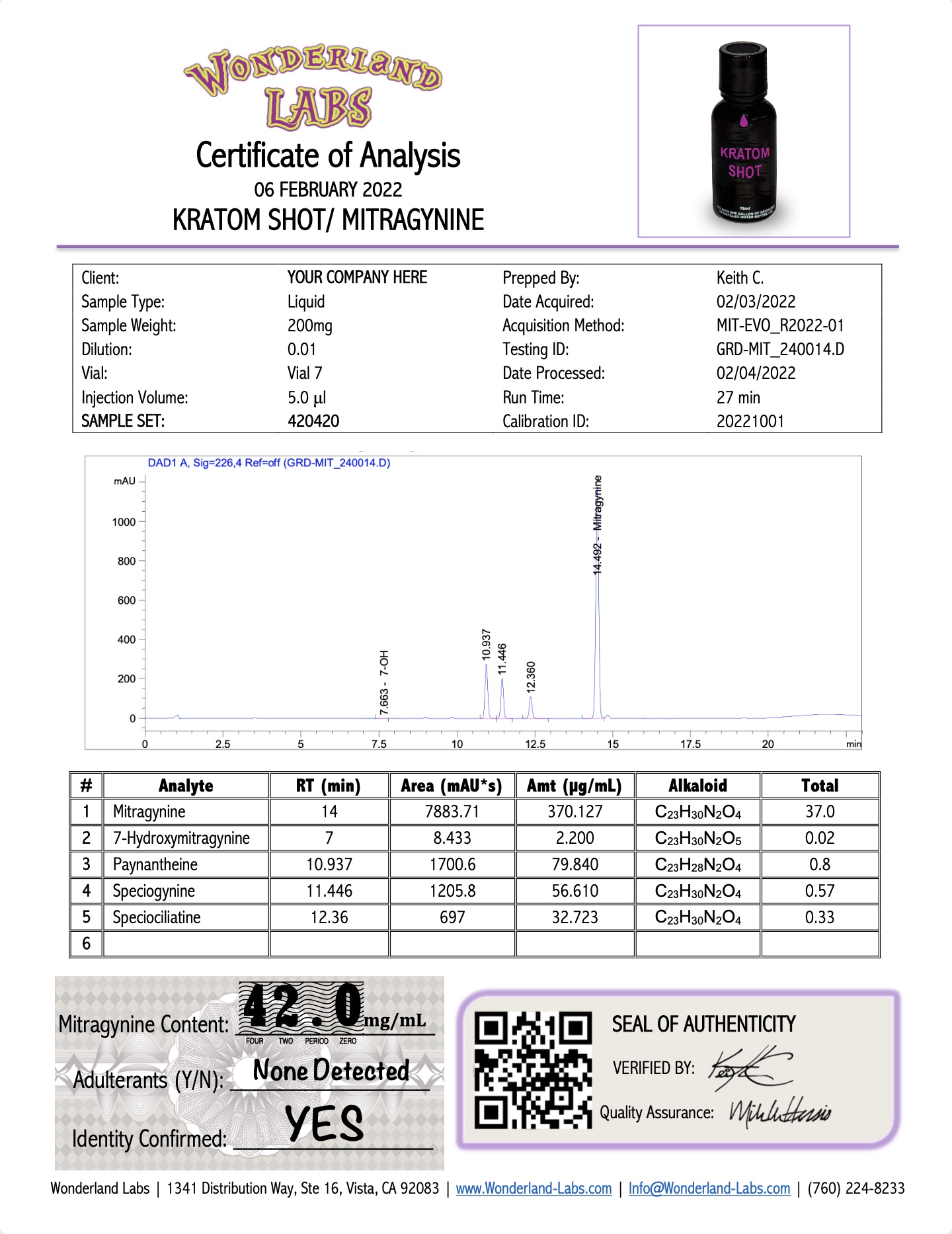 KRATOM LAB TESTING AND WHY IT MATTERS
KRATOM LAB TESTING AND WHY IT MATTERS
You’ve found the premier beyond GMP-compliant facility that specializes in Kratom lab testing. Most labs seem to be too nervous to handle Kratom or have biases against what we feel is an important natural product that has been unfairly targeted by both the media and the government. We believe in safety for all products that may end up intended for consumption, even if they are considered taboo by many.
Take Kratom (Mitragyna speciosa) for example. We have studied the research, we have tested over 50 distinctly different varieties of Kratom leaf, powder, and extract over the past several years. When we are certain that the material was handled in a professional manner, when we are certain that the product was properly dried, and hadn’t sat around damp in a hot place for a long period of time, we have found nothing inherently harmful in raw, unadulterated Kratom. We also feel this is an extremely important plant when it comes to helping make people’s lives better.
For those reasons and more, we are proud to be your #1 place for Kratom Lab Testing. We provide signed and embossed Certificates of Analysis that are accepted by the FDA as ample evidence of a product’s safety. Having a Certificate of Analysis doesn’t automatically make any product legal for consumption, but it does let the FDA know that if the product was consumed for any reason, that is is free of the pathogens and levels of heavy metals required by the FDA to be tested for.
Sometimes what seems like an obvious answer to us, is only obvious because of what we see every day here at the lab when it comes to discussing why lab tested Kratom matters as much as it does. When we first started testing exotic botanicals that were in the marketplace, what we found with the samples we tested was both surprising, and at time, more than a bit shocking.
Some of the product we were tasked with testing for Identification and alkaloid percentage, wasn’t always Mitragyna speciosa at all. Some was another strain, such as Mitragyna javanica, and some of it wasn’t Kratom leaf at all. More disturbing, though, are the pathogens that exist in some, but not all of the Kratom we’ve tested in the lab. And the amount of Kratom we’ve tested in the lab as of this writing is in the many hundreds of samples.
Because we want as broad a sample set to refer to, over the past several years, we have built up an extensive profile for Kratom. We have seen many duplicates marketed under different names, and we’ve seen identical strains that were named erroneously. Why that matters to you is all of that in-house testing of as much Kratom as we could get our hands on, means more accurate testing for you, and a wider sample set to draw our conclusions from.
What’s more, is we are continuously testing Mitragyna speciosa in our lab, sometimes as many as 40 samples a day. Because we keep one of our 4 machines so busy with Kratom samples, every few weeks, we recalibrate that machine, which is used exclusively for Kratom testing. We have what’s called a “reference standard”, and test against that reference standard every few weeks to be sure we’re pinpoint accurate with our results.
Kratom typically only has between 1%-2% mitragynine content and even less 7OH, so even tenths of a percent are critical when evaluating the quality of your product. Extracts typically contain anywhere between 3% – 8% mitragynine, and in a few rare cases, we’ve seen a 12%, and a 48%. That makes every tenth of a percent matter that much more.
Next, I don’t mean to be alarmist here, so I want to repeat to be clear: Even recently, with the larger than usual numbers of pathogens being found in the Kratom we receive to test, only a small percentage actually contains any of the dangerous pathogens we test for. If I had to make a guess, I would say that only about 5% of the total material we receive for testing came up positive for pathogens in the past 3 years, with perhaps 15% coming up positive for pathogens in the past 6 months.
Yes, the percentage of adulterated Kratom is increasing. In no particular order, we test everything from mold and yeast counts, to aerobic plate counts to common pathogens found in food products (mostly from mishandling) such as Coliforms (rod-shaped Gram-negative bacteria found in soil and on vegetation and present in large numbers in the feces of warm-blooded animals), to E. coli, Salmonella and Staphylococcus. All of these pathogens are required tests by the FDA for any product that may be intended for consumption.
NOTE: We do not determine the legality of whether any material is legal for consumption; we simply test for common pathogens and adulterants, and determine whether there are acceptable levels of heavy metals in the material.
Speaking of, Kratom Lab Testing is becoming far more important now than it has even in the past year, partly because of the higher incidence of E. coli appearing in samples. What’s more, is the State of California has very strict limits on how much of these four metals can be in any material intended for consumption:
- Arsenic
- Cadmium
- Lead
- Mercury
The levels of lead allowed in Kratom leaf and extract is a meager 500 parts per billion. Although this might not sound like a lot, the problem is that many plants have more than that naturally occurring in them. And, Kratom is unfortunately one of those plants. Most of the Kratom we test in the lab contains between 500 – 800 parts per billion of lead. This makes it a “PASS” for everywhere in the United States except California.
So, we were forced to put 2 sets of “PASS/FAIL” sections on our Certificates of Analysis



 KRATOM LAB TESTING AND WHY IT MATTERS
KRATOM LAB TESTING AND WHY IT MATTERS